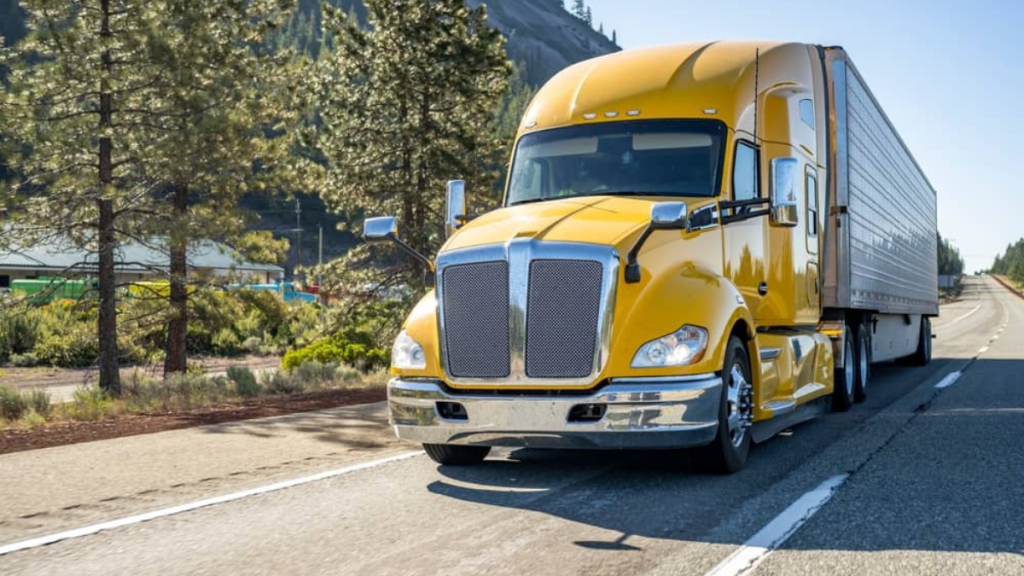The crash was bad. Semi versus sedan. You versus 40 tons of steel.
Now you’re nursing injuries, staring down a mountain of bills, and wondering why the driver behind the wheel of that big rig was even on the road in the first place. Overworked? Undertrained? Over the legal limit for hours?
You’re not alone in asking.
The good news? You don’t have to figure it out by yourself. Arizona truck accident attorneys know where to look—and the first place they start is with federal law.
Because long before that truck ever hit the freeway, it was bound by rules. Lots of them. Let’s break down how those laws work—and how they can make or break your case.
Federal Trucking Law 101: The Oversight That Starts Before the Ignition
Most truck accident victims assume state traffic laws control everything. Not so fast.
Commercial trucks (anything over 10,000 lbs used for business across state lines) are governed by Federal Motor Carrier Safety Regulations (FMCSRs)—a dense but powerful rulebook enforced by the Federal Motor Carrier Safety Administration (FMCSA).
Translation? Trucking companies and their drivers operate under a federal spotlight. And when they screw up, those violations can become legal leverage.
Hours-of-Service (HOS) Rules: Fatigue Isn’t Just Dangerous—It’s Illegal
One of the biggest causes of truck accidents? Driver fatigue. But it’s not just a bad habit. It’s often a violation of strict federal limits:
- 11-Hour Rule – Drivers can’t be behind the wheel more than 11 hours after 10 consecutive hours off duty.
- 14-Hour Window – Once they start their day, drivers have 14 hours max to get all driving and non-driving work done.
- 60/70-Hour Rule – No more than 60 hours in 7 days, or 70 in 8 days, depending on the schedule.
If a driver blows past those limits, the company should know. Why? Because they’re required to keep electronic logging devices (ELDs) in every truck.
Arizona truck accident attorneys can subpoena those logs to prove the driver was fatigued—and that the company let it happen.
Training & Licensing: Not Every CDL Means “Qualified”
Holding a Commercial Driver’s License (CDL) is just the start. Federal law requires:
- Ongoing training
- Medical certifications
- Drug and alcohol testing
- Background checks
Was the driver qualified? Certified? Drug-free? Arizona attorneys dig through hiring records and safety audits to find out.
If a company skipped steps or ignored red flags? That’s not just negligence. That’s liability.
Vehicle Maintenance: Broken Trucks, Broken Promises
The FMCSA mandates routine inspections, repairs, and maintenance for every truck. Not once a year—constantly.
That includes:
- Brake systems
- Tires and wheels
- Lighting and reflective device
- Coupling devices (you don’t want trailers separating at 70 mph)
After an accident, a good attorney looks at the vehicle’s inspection logs and repair history. Was it roadworthy, or just barely hanging on?
If faulty brakes or worn tires played a role, that’s actionable.
Load Rules: Weight Limits Aren’t Suggestions
Federal law also controls how much a truck can carry—and how that load must be secured. Think:
- Maximum gross vehicle weight: 80,000 lbs (with exceptions)
- Axle weight limits
- Cargo securement protocols
Improperly balanced loads cause rollovers. Unsecured cargo causes road debris—and chaos.
When accidents happen, attorneys look closely at loading manifests and weigh station records. If corners were cut to save time? That’s a case.
Why All This Matters: Violations = Leverage
Here’s the legal kicker: If your attorney can prove a violation of federal trucking law, it often means the company was per se negligent—legal speak for “automatically on the hook.”
And that changes everything:
- Higher settlement offers
- Greater chances of a court win
- Stronger pressure to admit fault
Even better? Arizona truck accident attorneys often bring in federal safety experts to testify. When they explain how the rules were broken—and why it put lives at risk—it’s powerful.
Final Gear: Don’t Fight a Freight Company Alone
Truck accidents aren’t fender benders. They’re multi-layered legal beasts involving:
- Federal and state law
- Corporate defense teams
- Complex evidence
- Massive insurance policies
You need someone who speaks FMCSA fluently. Someone who knows that fatigue logs matter as much as police reports. Someone who will ask, “Why was that truck on the road at all?”
That’s what Arizona truck accident attorneys do. They don’t just chase settlements—they build airtight cases grounded in federal law.
So if a truck knocked your life off course, remember this: the law is already on your side. You just need someone who knows how to use it.

